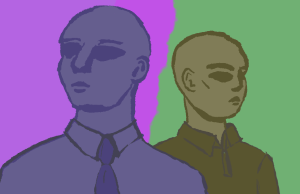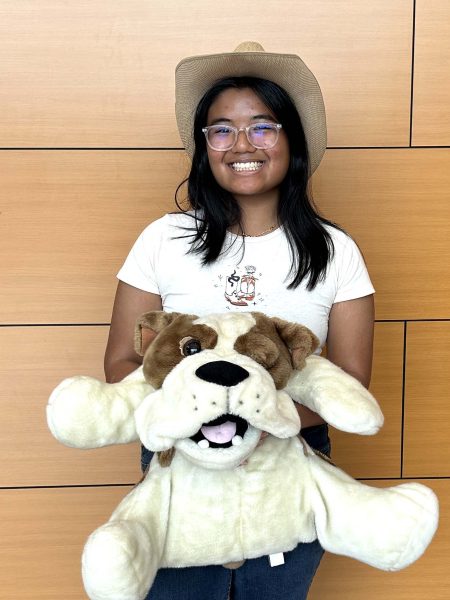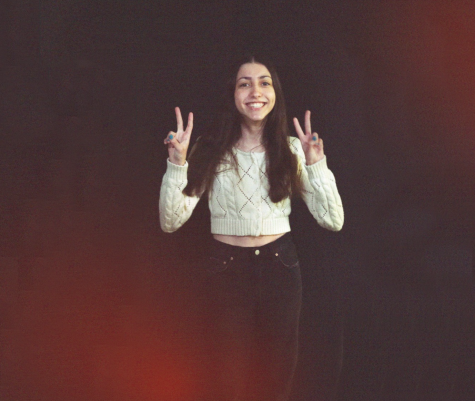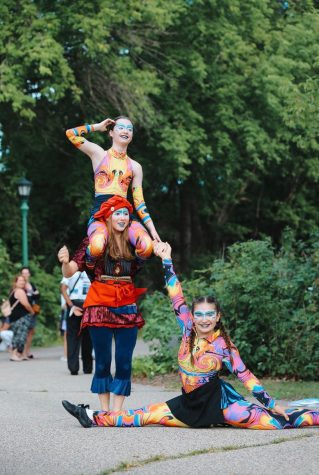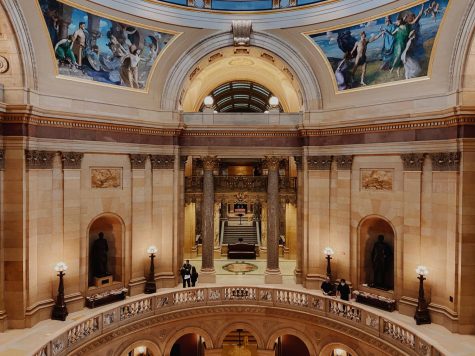ChatGPT raises ethical concerns that may harm society and future AI
January 20, 2023
The word “robot” was coined by Czech writer Karel Capek in his 1920 play, “Rossum’s Universal Robots,” where robots grow unhappy working for humans and rebel. Today, robots aren’t exactly taking over the world, but if artificial intelligence continues the unstable path it’s taking now, takeover is bound to happen.
ChatGPT is an AI with the ability to converse with users, but unlike other AI, it can carry context throughout the conversation by responding to follow-up questions, acknowledging errors, and challenging incorrect assumptions. These abilities enable accessible plagiarism in school, allowing it to spit out mathematical proofs that could let students slack off in classes as well as write code that threatens software engineers’ jobs, all while maintaining a potentially biased model.
When exploring the topic of AI usage, it’s difficult to ignore ownership. Users can ask AI to create something while still claiming it as their own. Consequently, teachers are worried about the use of AI for school work. “I’m already seeing AI creep into my classes. I’ve had students pull out an AI [art] generator [to plan artwork] and copy it,” Edina High School drawing and painting teacher Dalen Towne said.
With ChatGPT’s capabilities, there’s no doubt that it will be misused by students. A student lacking motivation could easily prompt ChatGPT to write an essay for them. Once the essay is turned in, no one would notice.
Every subject has potential to be exploited by ChatGPT. “I’m concerned about [future coding students] who graduate. [Will] companies hire them thinking that they know how to code and they don’t? How will they perform?” EHS Project Lead the Way teacher Shannon Seaver said.
ChatGPT raises serious questions surrounding academic dishonesty while also making students dependent on the technology, resulting in failure to learn. Copyright laws need to be created to define this gray area, but until then, teaching students the ethics of using AI is vital.
ChatGPT needs litigation, especially concerning bias. Trained with a broad data set, it learned to recognize patterns and produce text eerily similar to human writing. If there is any bias in said data, however, that bias could be amplified. OpenAI’s website has an explanation of the steps taken to train ChatGPT, but doesn’t state where the information is obtained or if the OpenAI team was even able to provide accurate data for ChatGPT.
“Let’s Talk About Race: Identity, Chatbots, and AI,” a paper published in 2018, explains how chatbots have difficulty discussing race due to the biased content of their databases. This is especially worrisome as 83% of companies say AI is a top priority to assist operations. Impartial data must be provided during training to combat AI’s inaccurate operation when minorities, particularly people of color, are introduced to the system. Unfortunately, there’s no way to prevent ChatGPT from consuming biased content—the only way to stop ChatGPT from forming biases is to completely rehaul the system. It raises the question—how can we depend on such technology as our future, if we can’t trust it to represent humankind?
OpenAI CEO, Sam Altman, suggests people “thumbs down” harmful or biased results to help ChatGPT improve. A “thumbs down” simply won’t cut it. Handing the problem over to users will not solve enough in the long run. “What’s required is a serious look at the architecture, training data and goals. That requires a company to prioritize these kinds of ethical issues,” head of the computation and language lab at the University of California, Berkeley Steven Piantadosi said. OpenAI’s lack of accountability will only encourage future developers to follow in the company’s footsteps, not accurately modeling our diverse world.
With the rise of ChatGPT, however, “future developers” may not even exist. Concerns that AI could replace human jobs in the future increase daily. Software engineers are finding that ChatGPT, even in its free-to-use stage, can write working lines of code. Though it hasn’t reached the level of intricacy human developers have, it would be unsurprising if AI could in upcoming years, threatening the job security of many.
Creative jobs are at stake too—companies that prefer cheaper labor will focus on AI-generated material rather than that of humans. Another OpenAI program, DALL·E, has rattled the art community for producing AI-generated works, outcompeting artists who spend hours creating their pieces. “They’re taking our work and it’s being put out there for other people to use for far less money. There is no compensation and it also brings up copyright issues that artists are going to have to deal with,” Towne said.
For those unconcerned about AI and ChatGPT, it’s true that the bot itself is imperfect: a sparse knowledge base after 2021, a tendency to produce incorrect information, and an inability to answer the same question rephrased. Yet, ChatGPT’s utilization of Reinforcement Learning from Human Feedback and continuous updates will allow it and similar programs will dominate the tech industry.
Until OpenAI changes the way they handle ethical issues, ChatGPT’s presence alone leads to misuse. If a bot in its early stages managed to flip the world upside-down, who knows what it could bring in coming years? We must monitor our usage of it by keeping an eye out for what AI will bring and how the world will wield it. If we don’t, an AI dystopia could be a blink away.

